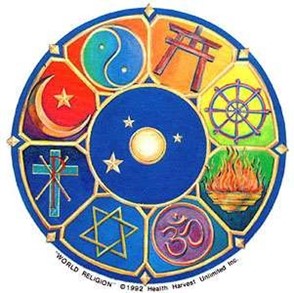Talk:Interfaith Perspectives:Comparison of Brahman/Īshvara with the Abrahamic ‘God’
By Sri Vishal Agarwal
The Hindu philosophy of Brahman and Īśvara are more comprehensive and logical compared to the Abrahamic notions of Bhagavān. In the former, the Divine is both transcendent and immanent (i.e. beyond the creation as well as within it; and the creation itself is a part of the Divine) whereas in the latter, Bhagavān is transcendent, and it is blasphemous to regard the creation as a part of Bhagavān. A Western Christian scholar explains this vital difference between the Hindu and the Abrahamic viewpoints:
In this concept [Western concept of a transcendent Bhagavān], Bhagavān is perceived as a spirit or personality that exists outside of, and apart from, “His” (and Bhagavān is invariably thought of in masculine terms within most Western traditions) creation like some great benevolent monarch overseeing a vast kingdom. He is thought to be a conscious, moral agent of unlimited power and intellect that, though existing entirely apart from time and matter, uses both His ongoing quest to create and, when necessary, destroy. He is “first cause” or, more precisely, that from which everything else emanates, and there is nothing that exists that He did not first conceive of and create through the sheer power of His will. To such a Bhagavān, the universe was brought into existence in the distant past and will end at some future date, at which point time will come to an end and the great “experiment” will be concluded.[1]
…From this perspective [the Eastern concept of an Immanent Bhagavān], to speak of Bhagavān is to refer to all that is, all that has ever existed, and all that ever will exist. Bhagavān is not a someone or something that creates things out of nothingness, but rather Bhagavān is the creation itself – every molecule, every cell, and every atom in the universe are all a part of the vast and infinite “body” of Bhagavān. It is eternal and immortal, has always existed and will always exist, without beginning or end. To the Eastern mind, then, Bhagavān does not “bring forth” the universe and all within it; Bhagavān is the universe and all within it.
The differences between the Hindu and Abrahamic notions of the Divine may be represented diagrammatically as below -[2]


